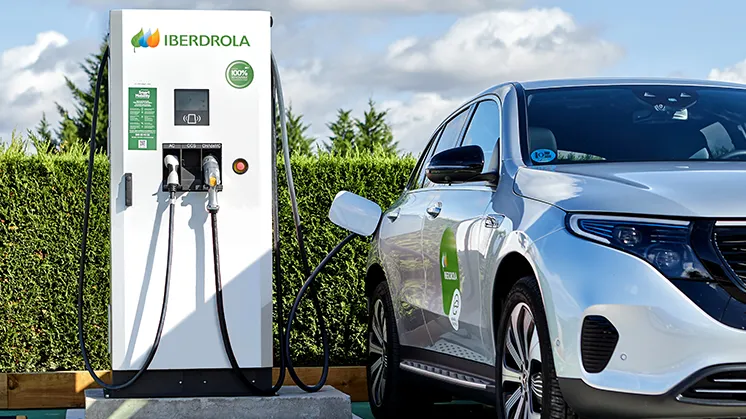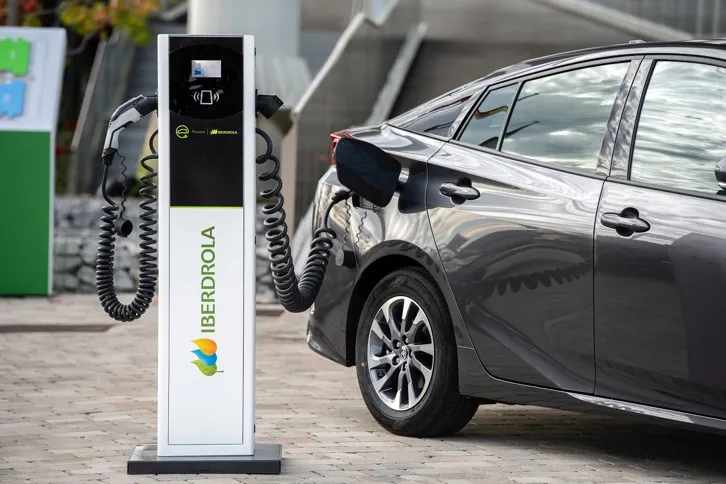
Iberdrola and ANFAC Collaborate to Accelerate Electric Mobility in Spain
Iberdrola España and ANFAC (the Spanish Association of Automobile and Truck Manufacturers) have joined forces in a significant alliance aimed at promoting electric mobility in Spain. As the only fully emission-free transportation option currently available, electric vehicles (EVs) offer a sustainable solution that not only helps reduce environmental impact but also enhances the country’s energy independence.
The collaboration between these two organizations underscores the urgency of transitioning towards sustainable mobility, aligning with the goals set by the European Union and Spain’s National Energy and Climate Plan (NECP). By working together, Iberdrola and ANFAC seek to strengthen the adoption of EVs, expand public charging infrastructure, and advocate for effective public policies and incentives to accelerate the shift towards a greener transportation future.
The Importance of Electric Mobility in Spain
Electric mobility has emerged as a crucial component of Spain’s strategy to reduce carbon emissions and combat climate change. The transport sector is one of the largest contributors to greenhouse gas emissions, making the transition to zero-emission vehicles imperative. EV adoption is particularly essential in urban areas, where high levels of pollution impact public health and quality of life. By fostering the growth of electric mobility, Spain can significantly improve air quality and reduce its dependence on fossil fuels.

Beyond environmental benefits, electric mobility represents an economic opportunity for Spain. The shift to electric transportation creates jobs in various sectors, including vehicle manufacturing, battery production, renewable energy, and the construction of charging infrastructure. As Spain strengthens its position as a leader in the EV industry, the country stands to benefit from increased investment, innovation, and technological development in the mobility and renewable energy sectors.
Iberdrola’s Role in Charging Infrastructure Expansion
Iberdrola has positioned itself as a leader in Spain’s EV charging infrastructure. The company currently operates more than 8,400 charging points across the country, all of which guarantee a 100% renewable energy supply through Guarantees of Origin (GO). Additionally, Iberdrola has approximately 4,000 more charging points in various stages of installation or activation, further reinforcing its commitment to making EV charging widely accessible.
The expansion of charging infrastructure is one of the critical factors in accelerating EV adoption. Range anxiety remains a significant barrier for many potential EV buyers, and the availability of a reliable and widespread charging network can help alleviate these concerns. Iberdrola’s efforts to develop both urban and highway charging stations ensure that EV users have convenient access to charging facilities, thereby increasing consumer confidence in electric vehicles.
ANFAC’s Role in the Automotive Sector Transition
ANFAC plays a crucial role in the Spanish automotive industry, representing more than 60 brands involved in vehicle manufacturing and distribution. As the primary voice of the sector, ANFAC is dedicated to facilitating the transition to sustainable mobility through advocacy, collaboration with policymakers, and support for the automotive industry’s adaptation to electrification.
Spain is one of Europe’s largest automobile manufacturing hubs, with a strong presence of global carmakers and component suppliers. The Iberdrola shift to EV production presents both challenges and opportunities for the industry. To remain competitive, Spain must ensure that its automotive sector is equipped to meet the rising demand for electric vehicles, invest in new manufacturing technologies, and foster research and development in battery technology and energy efficiency.
ANFAC’s partnership with Iberdrola is vital in addressing these challenges. By working together, the two organizations can create synergies that encourage consumers to transition to electric vehicles, push for necessary regulatory frameworks, and ensure that the automotive industry remains a key player in the global EV market.
The Need for Public Policy and Incentives
One of the most significant aspects of the Iberdrola-ANFAC partnership is their shared commitment to advocating for effective public policies and incentives to support EV adoption. While Spain has made progress in promoting electric mobility, further measures are necessary to meet the ambitious goals outlined in the NECP and European climate targets.
Several key policy areas require attention to accelerate the transition:
- Financial Incentives for EV Buyers
- Direct subsidies and tax incentives can make EVs more affordable for consumers.
- Expanding existing programs such as the MOVES Plan can encourage wider adoption.
- Investment in Charging Infrastructure
- Public funding and private partnerships are needed to increase the number of charging points.
- Regulations should mandate the installation of charging stations in residential and commercial buildings.
- Support for the Automotive Industry
- Investment in research and development (R&D) for battery technology and vehicle electrification can enhance competitiveness.
- Government collaboration with manufacturers can ensure a smooth transition for workers in the automotive sector.
- Legislative Measures to Promote EV Adoption
- Clear and consistent policies regarding low-emission zones can drive demand for EVs.
- Standardization of charging infrastructure and interoperability between charging networks can improve user convenience.
Challenges and Opportunities in EV Adoption
Despite the progress being made, there are several challenges that must be addressed to achieve widespread EV adoption in Spain.
Challenges:
- High Initial Cost of EVs: While EV prices are gradually decreasing, they remain higher than traditional internal combustion engine vehicles.
- Limited Charging Infrastructure in Rural Areas: While urban centers are seeing an increase in charging points, rural and remote areas still lack adequate infrastructure.
- Consumer Awareness and Perception: Many potential buyers are still unfamiliar with EV technology and hesitant about making the switch.
Opportunities:
- Advancements in Battery Technology: Continuous improvements in battery efficiency and cost reduction will make EVs more attractive.
- Growth of Renewable Energy: The integration of renewable energy sources with EV charging can further enhance sustainability.
- Economic Benefits: Increased production of EVs and components can create new jobs and stimulate economic growth.







